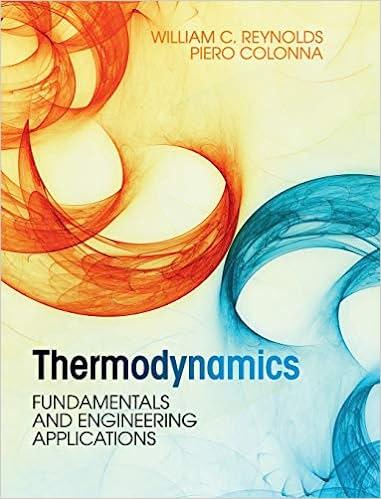The fuel efficiency of reciprocating engines could be greatly increased (and thus pollution decreased) if the thermal
Question:
The fuel efficiency of reciprocating engines could be greatly increased (and thus pollution decreased) if the thermal energy that is wasted with the exhaust gases and by cooling the engine jacket and the lube oil were converted into additional work. As a first step in this direction, the heat recovery from the exhaust of truck engines by means of mini-Organic Rankine Cycle (ORC) power systems is currently being pursued. Calculate the net power output of a mini-ORC turbo generator recovering heat from the flue gases of a truck diesel engine in cruise conditions, thus delivering 150 kW. The working fluid is siloxane MDM, and the system implements the superheated, regenerated cycle configuration. The mass flow rate of the engine exhaust is 0.18 kg/s and the temperature of the gases at the inlet of the primary heat exchanger is 590 K. The isobaric specific heat of the gases can be assumed constant and is cP = 1.1 kJ/(kg ·K). The temperature of the cooling water of the radiator that can be used to condense the ORC working fluids is maintained by the control system around 358 K independently of the engine load. A condensing pressure of 0.2 bar is thus deemed to be feasible under all operating conditions. The minimum temperature difference in the primary heat exchanger is 20 K and in the regenerator is 10 K. The pressure in the evaporator is 5 bar, while the degree of superheating is 5 K. All pressure losses within the ORC system can be assumed negligible. The turbine efficiency is 0.70, while that of the pump is 0.6.
Step by Step Answer:

Thermodynamics Fundamentals And Engineering Applications
ISBN: 9780521862738
1st Edition
Authors: William C. Reynolds, Piero Colonna





